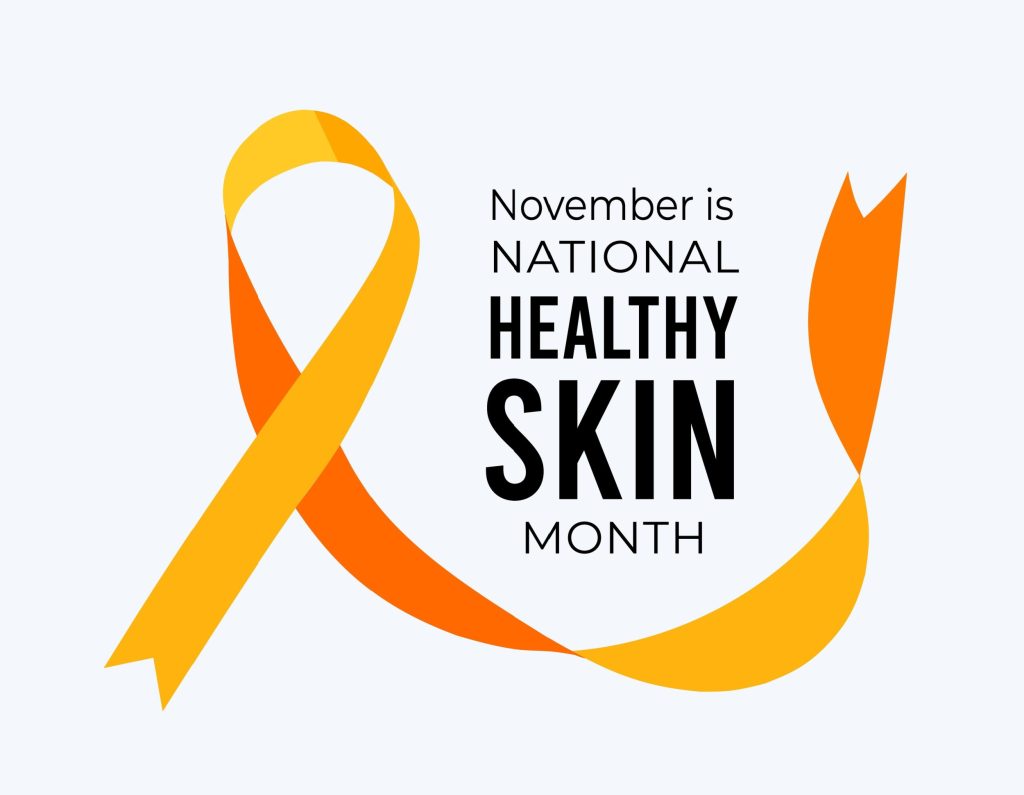
October is National Eczema Month, a time dedicated to raising awareness about this common skin condition. Approximately 16.5 million adults in the United States are affected by eczema, and among them, 6.6 million experience moderate to severe symptoms. Join us as we explore what eczema is, its symptoms, diagnosis, treatment options, at-home remedies, and the outlook for managing this condition. Additionally, we’ll highlight how Florida Dermatology and Skin Cancer Centers can assist you in managing eczema effectively. *
What is Eczema?
Eczema is a chronic skin condition characterized by inflammation and irritation of the skin. It often leads to redness, itching, and the development of dry, scaly patches. While eczema can affect people of all ages, it is especially common in children. The most prevalent type of eczema is known as atopic dermatitis (AD). Although there is no cure for eczema, you can manage its symptoms with proper treatment from a dermatologist.
What are the Symptoms of Eczema?
- Itching: The most prominent symptom of eczema is intense itching, which can be severe and disrupt daily life.
- Redness: Affected skin areas can become red or inflamed due to irritation and itching.
- Dryness: Eczema causes the skin to become excessively dry and may lead to flaking or peeling.
- Rash: A rash may develop, consisting of small, raised bumps that can ooze fluid and crust over.
- Thickened Skin: Over time, repeated scratching can lead to thickened and leathery skin where eczema is present.
Diagnosis of Eczema:
Diagnosing eczema typically involves a physical skin exam by a licensed dermatologist. During a skin exam, your medical history and symptoms are discussed. In some cases, a skin biopsy or other tests may be necessary to rule out other skin conditions. Eczema is easy to diagnose with the right dermatological professional by your side.
Treatment Options for Eczema:
Your dermatologist or skin care professional can help you manage your eczema by recommending or prescribing the following:
- Topical Steroids: Prescription creams or ointments containing corticosteroids can help reduce inflammation and itching.
- Emollients: Moisturizing creams and ointments can keep the skin hydrated and reduce dryness. Look for fragrance-free, hypoallergenic, and non-comedogenic ingredients and brands.
- Antihistamines: These can help relieve itching, especially if taken at night to aid with sleep.
- Topical Calcineurin Inhibitors: These non-steroidal creams can be prescribed for use to control inflammation caused by atopic eczema. Topical calcineurin inhibitors (TCIs) help suppress overactivity of immune system response.
- Biologic Medications: In severe cases, biologic drugs (monoclonal antibodies) may be recommended to manage eczema. Monoclonal antibodies are laboratory-produced proteins created by researchers to replicate the functions of your body’s natural antibodies, which are integral components of your immune system. These antibodies play a crucial role in recognizing and flagging things that should not be present in your body.
At-Home Remedies for Eczema:
In addition to medical treatments, there are several at-home remedies that can help alleviate eczema symptoms:
- Regular Moisturization: Apply a fragrance-free moisturizer daily to keep your skin hydrated.
- Avoid Triggers: Identify and avoid triggers that worsen your eczema, such as certain fabrics, soaps, or environmental allergens.
- Cool Compresses: Apply a cool, damp cloth to itchy areas to provide relief instead of scratching.
- Cotton Clothing: Wear loose-fitting, breathable cotton clothing to reduce skin irritation.
- Stress Management: Stress can exacerbate eczema, so practicing relaxation techniques can be beneficial.
Outlook for Eczema:
Eczema is a chronic condition, but with proper management, most people can control their symptoms effectively. Symptoms may come and go, and some individuals can outgrow them as they get older. Effective treatment and lifestyle adjustments can significantly improve the quality of life for those living with eczema.
How Florida Dermatology and Skin Cancer Centers Can Help:
FLDSCC is dedicated to helping you manage your eczema successfully. Our experienced dermatologists can provide personalized treatment plans tailored to your specific needs. We offer a range of medical and cosmetic services to address eczema and other skin conditions, ensuring that you receive the care and support you require to achieve healthier, more comfortable skin.
Key Takeaways:
During National Eczema Month, it’s essential to increase awareness about eczema and the available resources for managing this condition. By understanding what eczema is, recognizing its symptoms, seeking proper diagnosis and treatment, and implementing at-home remedies, individuals with eczema can lead healthier, more comfortable lives. If you’re struggling with eczema, don’t hesitate to reach out to Florida Dermatology and Skin Cancer Centers for expert guidance and support.
FLDSCC Can Treat All Skin Conditions
The board-certified dermatologists at Florida Dermatology and Skin Cancer Centers are experts in the field of hair, nails, and skin. If you have unexplained redness, itching, or dryness, our medical professionals can make an accurate diagnosis of your condition and get you started on a treatment plan that meets your individual needs. Contact us today to schedule a consultation at the clinic nearest you. For more information about services that Florida Dermatology and Skin Cancer Centers provides, or to make an appointment for a skin exam, visit www.fldscc.com or contact us at (855) FLD-SKIN.
*2023 facts and figures derived from the Asthma and Allergy Foundation of America.


